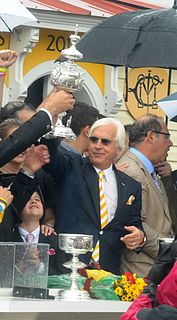A Quote by Neil Gaiman
Firstly, there no such person as Death.
Second, Death's this tall guy with a bone face, like a skeletal monk, with a scythe and an hourglass and a big white horse and a penchant for playing chess with Scandinavians.
Third, he doesn't exist either.
Related Quotes
In literature and in art, alike, this gloomy fashion of regarding Death has been characteristic of Christianity. Death has been painted as a skeleton grasping a scythe, a grinning skull, a threatening figure with terrible face and uplifted dart, a bony scarecrow shaking an hourglass - all that could alarm and repel has been gathered round this rightly-named King of Terrors.
There is no single best kind of death. A good death is one that is "appropriate" for that person. It is a death in which the hand of the way of dying slips easily into the glove of the act itself. It is in character, ego-syntonic. It, the death, fits the person. It is a death that one might choose if it were realistically possible for one to choose one's own death.
Death is a part of all our lives. Whether we like it or not, it is bound to happen. Instead of avoiding thinking about it, it is better to understand its meaning. We all have the same body, the same human flesh, and therefore we will all die. There is a big difference, of course, between natural death and accidental death, but basically death will come sooner or later. If from the beginning your attitude is 'Yes, death is part of our lives,' then it may be easier to face.
I don't encourage any act of murder nor do I glorify in anybody's death, but I do think that when the white public uses its press to magnify the fact that there are the lives of white hostages at stake, they don't say "hostages," every paper says "white hostages." They give me the impression that they attach more importance to a white hostage and a white death, than they do the death of a human being, despite the color of his skin.
There is another side to death. Whether death happens through an act of violence to a large number of people or to an individual, whether death comes prematurely through illness or accident, or whether death comes through old age, death is always an opening. So a great opportunity comes whenever we face death.
In the face of death, especially violent death, things don't make sense anymore. So death is the dissolution of either physical form or psychological form. And when a form dissolves, always something shines through that had been obscured by the form. This is the formless One Life, the formless One Consciousness.
But how to know the falsity of death? How can we know there is no death? Until we know that, our fear of death will not go either. Until we know the falsity of death, our lives will remain false. As long as there is fear of death, there cannot be authentic life. As long as we tremble with the fear of death, we cannot summon the capacity to live our lives. One can live only when the shadow of death has disappeared forever. How can a frightened and trembling mind live? And when death seems to be approaching every second, how is it possible to live? How can we live?
[There are, in us] possibilities that take our breath away, and show a world wider than either physics or philistine ethics can imagine. Here is a world in which all is well, in spite of certain forms of death, death of hope, death of strength, death of responsibility, of fear and wrong, death of everything that paganism, naturalism and legalism pin their trust on.

































